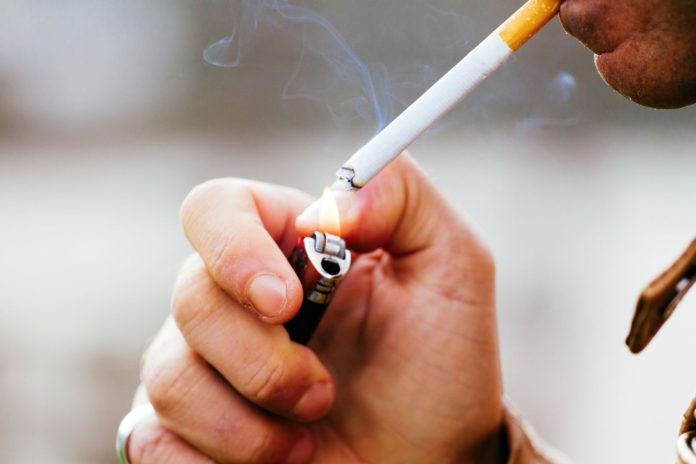In what could lead to a change in the city’s smoking ordinance, the Fort Worth City Council heard a presentation from Senior Assistant City Attorney Christa Reynolds in its work session Tuesday.
“The timing seems to be really good,” Mayor Betsy Price said of possible changes.
The current ordinance, in place since 2008, prohibits smoking in restaurants, bars in restaurants, business offices and buildings, and within 20 feet of a primary entrance/exit of a regulated facility. It allows smoking in bars licensed by the state that have more than 70 percent of annual gross sales from alcoholic beverages for consumption by guests on the premises.
Other exemptions include up to 25 percent of hotel/motel rooms, private club members, private meeting rooms in public places, outdoor dining areas, outdoor service lines 20 feet from the primary entrance, retail tobacco stores, and bingo parlors.
Reynolds said that Fort Worth is the only major city that still has an exemption for bars.
“Where we were the leader in our prohibition of smoking, we are now the stand-alone city, major city, in our benchmark cities which carves out an exception for bars,” she said.
In moving forward, Reynolds said it was recommended retail tobacco shops be redefined as retail smoking shops to include e-cigarettes and vaping products, and to be prohibited from being within 300 feet of schools, universities, churches and hospitals.
The council discussed changing the ordinance to include banning smoking in all enclosed public places, including bars, bingo parlors and private clubs/private events, along with regulating e-cigarettes and vaping. Reynolds said Austin and El Paso also include e-cigarettes and vaping as banned in their ordinances, citing a 2016 statement from the Surgeon General that the aerosol released vaping and e-cigarettes is toxic and should be regulated, though not as bad as second-hand smoke.
“We could become a county that’s smoke free,” Price said. “Billy Bob’s, of all things, is smoke-free.”
District 7 Council Member Dennis Shingleton asked about businesses that have cigars for purchase and if they should have an exemption carved out.
“Those have as their identification a cigar-based clientele,” he said.
As or vaping and e-cigarettes, he said the council would be “regulating against a tide that’s not going to be there a year from now.”
To which District 9 Council Member Ann Zadeh disagreed.
“I see it as something capturing the attention of young people,” she said. “They see it as different from cigarettes. They think it’s not as dangerous, or not as unhealthy. I think that’s a disturbing trend among young people.”
Zadeh also suggested that, “Just a regular bar can’t set a box of cigars on the counter and call themselves some kind of cigar store.”
District 6 Council Member Jungus Jordan expressed concern over what will and will not be considered exemptions.
“As a human I will not go in a place that allows smoking. The American in me says I don’t want to take anyone’s liberty,” he said. “What bothers me is the word private. My concern is what are the exemptions?”
District 2 Council Member Carlos Flores said, “We have to change according to the times.”
Gyna Bivens, Council Member for District 5, said she is in favor of no exemptions.
“What’s the point?” she said, adding that she wants herself and fellow citizens to be able to take a walk in a park without breathing smoke.
“Who is there to protect them but this council?” she said. “This city has a responsibility to protect the public.”
The possibility of change was met with mixed reviews from some area bar owners.
Bryan Beckman, co-owner of Magnolia Motor Lounge, said his club has been non-smoking since it opened six years ago. They only allow smoking on the patio. However, he said regulating should be the choice of the owner.
“As a guest, I prefer non-smoking establishments,” he said. “As a previous bar owner and manager, I think it should be left to the establishments.”
Though no action was taken, the session ended with the council agreeing to set up some public hearings on the subject.






